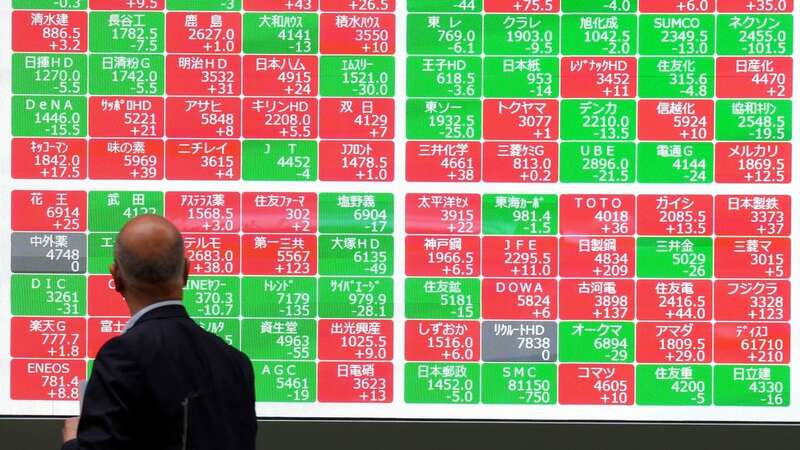
Asian stocks showed a mixed performance on Tuesday, amid a busy week filled with several top-tier reports on US inflation and a policy meeting of the Federal Reserve US futures and oil prices took a dip.
In Tokyo, the Nikkei 225 index saw a slight increase of 0.1% at 39,092.32 as investors eagerly awaited the outcome of a meeting by the Bank of Japan. The central bank had previously raised its benchmark interest rate in March to a range of 0 to 0.1% from minus 0.1%, marking its first such increase in 17 years.
Market analysts suggested that markets were leaning towards two rate hikes by the end of this year, with broad expectations of further rate increases as early as July. Hong Kong's Hang Seng took a hit, sinking 1.1% to 18,165.21, while the Shanghai Composite lost 0.9% to 3,023.46 after reopening from a public holiday.
Markets remained cautious ahead of a report on inflation in China due out Wednesday. Australia's S&P/ASX 200 slipped 1.4% to 7,748.30. South Korea's Kospi was slightly up by 0.3% to 2,709.87.
On Monday, the S&P 500 rose 0.3% to 5,360.79, surpassing its all-time high set last week. The Nasdaq composite also set a record after rising 0.3% to 17,192.53, while the Dow Jones Industrial Average gained 0.2% to 38,868.04.
 Meghan's response to 'angry black woman' trope as 'difficult' claim resurfaces
Meghan's response to 'angry black woman' trope as 'difficult' claim resurfaces
Recent economic data has been a mixed bag, with traders hoping for a slowdown that avoids a recession and is just the right size. A slowdown would put less pressure on inflation, potentially prompting the Federal Reserve to lower its main interest rate from its highest level in over two decades.
However, interpreting the numbers has proven challenging, especially with Friday's stronger-than-expected jobs report following hot on the heels of weaker-than-expected reports on US manufacturing and other sectors of the economy. Even within US consumer spending, the economy's lifeblood, there's a stark divide between lower-income households struggling to keep up with persistent high inflation and higher-income households faring much better.
Companies reaping the benefits of the AI boom continue to report significant growth, seemingly unaffected by the state of the economy or interest rates. For instance, Nvidia, valued at approximately $3trillion, saw a 0.7% increase on Monday after bouncing back from an early morning loss.
It marked the company's first trading day since a 10-for-one stock split made its shares more affordable to investors, following a surge to over $1,000. Ahead of reports later this week revealing whether inflation improved last month at both consumer and wholesale levels, Treasury yields were mixed in the bond market.
This Wednesday, the Federal Reserve is set to announce its latest decision on interest rates. While no one anticipates a change in the main interest rate at this time, policy makers will be revealing their most recent forecasts for future interest rates and economic trends.
Back in March, when Fed officials last released such projections, they suggested that the average member predicted approximately three cuts to interest rates in 2024. This forecast is likely to decrease this time around, with Wall Street traders largely wagering on just one or two rate cuts in 2024, as per data from CME Group.
In the bond market, the yield on the 10-year Treasury increased to 4.46% from 4.43% late Friday. The two-year yield, which more closely follows Fed expectations, dipped to 4.88% from 4.89%. In other market activity, US benchmark crude oil dropped 3 cents to $77.71 per barrel in electronic trading on the New York Mercantile Exchange.
Brent crude, the international standard, fell by 14 cents to $81.49 per barrel. The US dollar appreciated to 157.25 Japanese yen from 157.04 yen. The euro rose to $1.0770 from $1.0766.
Read more similar news:
Comments:
comments powered by Disqus
































